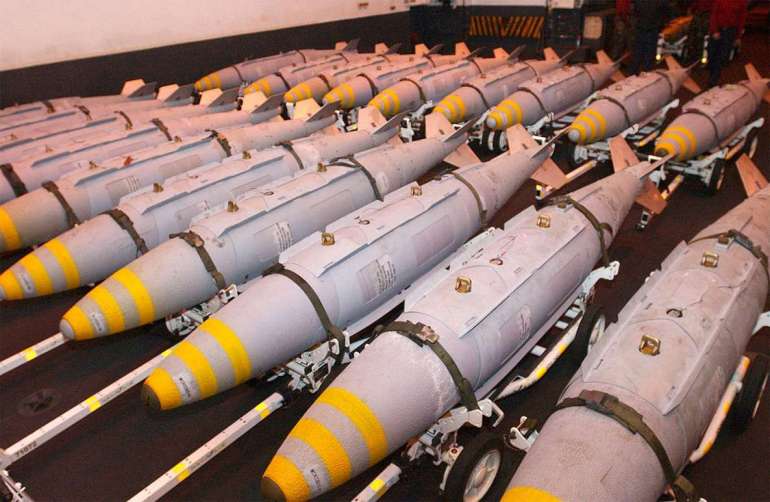Russia jamming U.S. smart bombs in Ukraine, leaked docs say

The Pentagon in December began sending Kyiv advanced equipment that could convert unguided air-dropped munitions into precision-guided “smart bombs” that can hit Russian targets with a higher degree of accuracy.
The guided bombs can be launched by a variety of aircraft such as bombers and fighters, and are called Joint Direct Attack Munitions or JDAMs. The longer-range version being sent to Ukraine is called a JDAM-Extended Range, or JDAM-ER.
But the weapons have experienced higher-than-expected dud rates and have missed their targets on the battlefield, according to a leaked slide prepared by the Joint Staff and confirmed by a U.S. official, who was granted anonymity to discuss a sensitive issue.
In some cases, the bomb fuzes were not arming when they were released, causing the weapon to fail to detonate. The Ukrainian air force put in place a fix to ensure the bombs are arming correctly, according to the slide and the official.
The document includes a diagram of the munition and lays out the technical issue the weapons are experiencing as well as the proposed fix. It also provides a detailed account of the weapon’s failure rate in several recent attacks, including the dates and the number of munitions it took to take out the target. However, POLITICO could not independently verify that information.
A larger problem is that Russia is using GPS jamming to interfere with the weapons’ targeting process, according to the slide and a separate person familiar with the issue who’s not in the U.S. government. American officials believe Russian jamming is causing the JDAMs, and at times other American weapons such as guided rockets, to miss their mark.
“I do think there may be concern that the Russians may be jamming the signal used to direct the JDAMs, which would answer why these munitions are not performing in the manner expected and how they perform in other war zones,” said Mick Mulroy a former Pentagon official and retired CIA officer.
A spokesperson for Boeing, which makes the guidance kits, referred questions to the U.S. government when asked for comment. Defense Department spokesperson Lt. Col. Garron Garn declined to comment on the content of the leaked documents.
“We have seen Ukraine use the security assistance the U.S. and our partners and allies have provided to great success in the defense of their sovereign territory,” Garn said. “We are not going to discuss battle damage or intelligence assessments due to operational security considerations.”